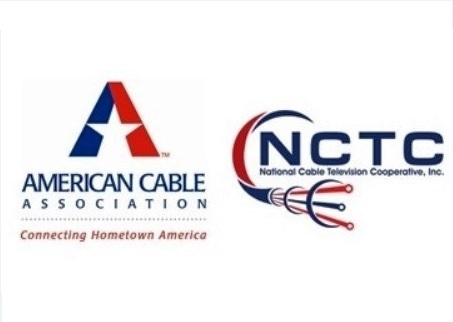ACA, NCTC Team To Back FCC Programming Inquiry
The smarter way to stay on top of the multichannel video marketplace. Sign up below.
You are now subscribed
Your newsletter sign-up was successful

The American Cable Association and National Cable Television Cooperative, long allied in the push to get the Federal Communications Commission to address issues like package deal programming negotiations, are ready for the agency to start drilling down on the issue.
The commission last week voted to launch, at the request of FCC commissioner Mignon Clyburn, an inquiry into access by traditional and online programming to distribution platforms.
"With the release of the FCC's Notice of Inquiry, the programmers behind these unfortunate market trends will finally come under the close scrutiny they so clearly deserve," said Matt Polka, president of the American Cable Association, in a jointly released statement today (Feb. 25).
The topic should be top of mind next week, when ACA members meet in Washington for their annual policy summit and then call on regulators and legislators in the city. This past December, the two associations teamed up to complain in Washington about channel-bundling tactics AMC Networks was then using as part of renewal talks with the cooperative. AMC and the NCTC later reached contract terms, though AMC programming did come off some smaller carriers and remains off them, as The Wall Street Journalreported.
NCTC, which negotiates program purchases for consortium of smaller providers, teamed with ACA to applaud the FCC inquiry, which both have long advocated.
"While we've completed many distribution agreements with new networks over the last few years in an effort to support diversity in content, unfortunately, our member operators are prevented from broadly supporting these networks as a result of the forced carriage terms demanded by large network groups," NCTC CEO Rich Fickle said in the statement.
Fickle says that some negotiations have included trying to discourage his member's support for alternative over-the-top video offerings, an issue the FCC definitely wants to hear about.
The smarter way to stay on top of the multichannel video marketplace. Sign up below.
Obstructing access to OTT, if true, is definitely on FCC Chairman Tom Wheeler's list of anti-competitive no-nos.
In outlining the inquiry last week, Media Bureau chief Bill Lake called it a fact-finding enterprise on program diversity and possible ways to address complaints that cable operators and other multichannel video-programming distributors (MVPDs) might be stifling competition.
The NCTC and ACA are drawing the agency's attention to what they called "onerous requirements in cable company carriage contracts that require a high percentage of subscribers to take -- and pay for -- the programmers' suite of shows, regardless of popularity. These provisions, known as guaranteed minimum penetration clauses, have been criticized by consumer advocates and others for limiting customer choice." Distributors say their ability to experiment with lower-cost packages of channels, possibly tacked onto broadband subscriptions, are hindered by contract strictures that require many networks be included in the most popular packages of programs.
"Besides reducing consumer choice at a time when subscribers are increasingly seeking low-cost cable TV choices and accessing their favorite programs online, this 'penetration guarantee' requirement hinders our ability to take on new independent and diverse programming," Elaine Partridge, VP of programming for ACA and NCTC member NewWave Communications, said in the groups' statement. "These outdated requirements limit our ability to offer subscribers inexpensive options, including the low-cost 'lifeline' and local cable packages."
Added Jim Holanda, CEO of RCN Telecom Services and Grande Communications, in the statement: "These restrictions are a version of anti-consumer bundling, greatly limiting consumer choice and flexibility and keeping our viewers' fees artificially high. It forces subscribers to buy services they do not want, and hurts low-income consumers who would choose not to pay extra monthly charges to simply watch the local broadcast cable package."
The FCC is inviting comment on the state of the marketplace and the challenges to entry. It’s also seeking comment on most favored nation and alternative distribution method provisions in contracts, which independent networks have said can hinder their access. It is also seeking comments on OTT distribution, program bundling, and issues affecting public, education and government (PEG) channels.
The FCC is also seeking comment on its legal authority to address any hindrances to distribution.
Contributing editor John Eggerton has been an editor and/or writer on media regulation, legislation and policy for over four decades, including covering the FCC, FTC, Congress, the major media trade associations, and the federal courts. In addition to Multichannel News and Broadcasting + Cable, his work has appeared in Radio World, TV Technology, TV Fax, This Week in Consumer Electronics, Variety and the Encyclopedia Britannica.

